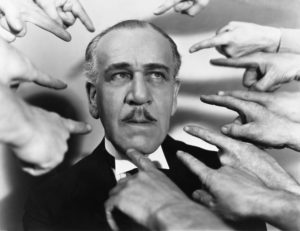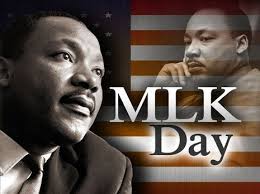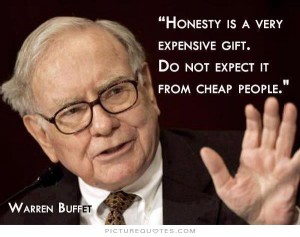by James Burns | Jan 29, 2018 | James Burns, Principles, Spiritual Maturity, The Bully Proof Classroom

Self AcceptanceSpiritually mature people have learned how to like themselves and value the differences between themselves and others. They have an understanding that they were created in a unique way. They don’t wish for what they don’t have, and are grateful for the things that they do have. As a young man I often wondered why I had the parents I had. I often wished that they were different and even sometimes wished that I had a different set of parents. I often wondered why I was stuck with two sisters, and didn’t have a brother. Sometimes I thought about how I wished I was taller, had bigger bones, and was smarter. When I was about 30, I came to grips with the fact that some things in life are unchangeable. When my own children start to complain about me or their mother I usually say to them, “Sorry we’re the only game in town; you can’t trade us in for another set.”
Spiritually mature people accept who they are. They realize that they wouldn’t be on this earth if their parents didn’t bring them into the world, and they accept their individual features that make them who they are.
The Balance of Power
Spiritually mature people understand the balance of power. In other words they know who is in charge and why certain people are in charge. I heard a great talk on leadership once at an administrator’s conference in Washington, DC. The speaker made a statement that really stuck with me. His statement was, “In order to be a good leader you have to be a good follower first.” Spiritually mature people know how to follow orders and work in any system without moaning and groaning, and don’t making statements like, “Why do we have to do this?” or better yet, “Why is he/she doing this?” They also don’t talk about their bosses behind their back. It is human nature to wonder why someone is doing something. Spiritually mature people know how to go to their boss and discuss things face to face.
Why do spiritually mature people have this ability? I believe it’s because they really know who is in absolute charge, and that’s God. They know that God has placed this person in charge of them for a reason, and if they have a problem with their boss they might as well have a problem with God, and they don’t want to take that chance. They have learned how to separate the person from the position. They respect their boss’s position, but in their heart they know that they don’t always have to like who he/she is as a person. They know that God will honor their compliance, loyalty, and respect for the person in charge and they believe that they will be blessed beyond measure for being a good employee.
The Spiritually Mature People Can Forgive Others
Spiritually Mature people know how to forgive others. I battle this all the time. I know in my heart that I have to forgive others. I know that it is not good to hold a grudge. I say to myself you have to forgive, for your own good, you have to forgive. My problem comes in when I can’t forget. The longer I dwell on someone or something the angrier I become and ultimately I become bitter. This bitterness affects me and those around me. I will admit that this feeling can consume me at times. I might even look to get even with the person who I feel wronged me. Sometimes when I sleep I am told that I make statement like, “wait until you see what I’m going to do to these people.” Forgiveness is a sign of spiritual maturity. Lack of forgiveness can paralyze a person causing obsessive thoughts that impact a person’s ability to function on a day to day basis.
Spiritually mature people know that the object of their bitterness will be dealt with by God. They know how to forgive and forget. Sometimes they not only forget but they work to restore the relationship between themselves and others. They don’t allow themselves to fall into the trap of unforgiveness for a minute because they know that it is something that could impact them for a lifetime.
by James Burns | Jan 26, 2018 | Criticism, James Burns, Principles, The Bully Proof Classroom

An emotionally mature person knows how to admit mistakes and can accept criticism with grace and humility. Emotionally mature people listen to criticism and ask themselves if what they are hearing is true. They do not get defensive or angry when someone doesn’t say what they want to hear. Often, the way a person is brought up plays a huge part in determining whether or not a they can handle criticism.
People who are placed on a pedestal when they are young will believe they can do no wrong and will have a difficult time when anyone criticizes them. At the other end of the spectrum, people who are raised in an environment where they were constantly criticized when they were young will also have a very tough time when anyone criticizes them. Often, people from both types of environments isolate themselves and ultimately have a real problem being around others for fear of hearing something that they don’t like.
I was brought up in a family where criticism was the rule, not the exception. My mother’s criticism had an extremely cruel edge to it as well. She was an expert at making each one of her children, including me, feel like a bad person. When I began my career as a teacher, I was twenty two years old. I was a special education teacher in a middle school in a inner city school in New Jersey. My class was made up of the toughest, most violent kids in the school. Their behavior was terrible and I had a tough time controlling the class. On one occasion very early in the school year, I was observed by the vice-principal. He came into my room unannounced and watched me teach for a full hour. My kids were not well behaved but I didn’t think they were as bad as they usually were.
About five days later, the vice-principal sat down with me to go over my performance evaluation. I was nervous since performance evaluations determined whether or not teachers get rehired.I knew very well that performance evaluations are designed to point out to the teacher some strength but mostly weaknesses that needed improvement. I knew I had to get myself ready for some criticism when during this conference. When the vice principal went over his findings with me, there wasn’t one positive remark in the evaluation. Every category was checked as either unsatisfactory or needs improvement. A mature reaction on my part would have been to engage my boss in a discussion so I could find out what he wanted me to do to improve. Instead, because of my knee-jerk reaction to any criticism whatsoever, my blood started to boil. I want you to understand that I knew my this was a fine administrator and a real gentleman. Knowing this, I should have realized that he was just doing his job and actually trying to help me. Unfortunately, that thought never entered my mind. Instead, I was having my immature, emotional reaction to him.
A day later, I went straight to the union representative and had him look at the evaluation. He immediately scheduled a meeting between himself, the principal, the vice principal and me. The principal of course supported the vice principal’s findings in the evaluation but he gave me a suggestion that actually leaked through my thick head. He told me to go over to another school and observe another class like mine and see if I could get some help. I scheduled time and went over to the other middle school in the district and started to observe a veteran teacher work with students who were as tough if not tougher than the students that I had in my class. This teacher had been in the district for many years and had developed so many effective techniques that he never really had any behavior problems. He was a kind, giving man and really took he under his wing. We became good friends. I learned from him and I became a better teacher.
The principal observed my classroom about four weeks later. This time there were positive things going on in my classroom. The kids being were pretty much on task and stayed in their seats. It actually looked like a classroom, not the circus. My new evaluation was great and assured me that my hard work was recognized. Even though I had had an immature reaction to the first performance evaluation, I had luckily listened to the one recommendation of the principal to visit another classroom. I started out very reactive but, with the help of others, finally realized there was a lot of truth in the criticism that had been included in that evaluation. It probably saved my job.
by James Burns | Jan 1, 2018 | Teachers, The Bully Proof Classroom
These lesson are designed to provide the students with a view of some of the quotes by Dr. Martin Luther King and also the character qualities that he displayed as a civil rights leader in the 1960’s. The lesson includes 10 quotes with one bonus quote at the end. Each quote has a character quality associated with it and 5-6 questions that you as the teacher can ask your students that will provoke discussion and give the students a chance to think of their responsibility as it relates to the character qualities. There is a short quiz at the end that the class can take as a whole, with one bonus question. Each question is worth 10 points. The bonus question can be awarded as many points as the teacher would like in order to increase the student’s score.

by James Burns | Feb 16, 2017 | James Burns, Kids and Stress, Parents, The Bully Proof Classroom
Huffington Post
10/31/2016 11:16 am ET | Updated Nov 02, 2016
Signe Whitson Author; School Counselor
In the last several years of working as a School Counselor and speaking with professionals, parents and students across the United States on the topic of Bullying Prevention, one of the observations that stands out to me the most is that parents, in general, are very eager to talk about bullying while their kids, on the other hand, seem to want to do anything but talk to their parents about this topic. The more parents pry, the more kids withdraw. The more parents push, the harder kids push-back — with excuses, minimizations, abrupt subject changes, stonewalling, silence, and sometimes even complete denial that a peer problem exists.
Read More
by James Burns | Apr 11, 2016 | Parents, School Administrators, Teachers, The Bully Proof Classroom
by James Burns | Dec 30, 2015 | Parents, School Administrators, Teachers, The Bully Proof Classroom

My parents owned a bar and from the time I can remember which was about four years old I spent my time sitting on a bar stool. Most kids were playing with their friends or some toys that they had I was always talking to strangers and playing with beer boxes. It did have its advantages, like as I got older I had a built in job and I really learned how to talk to adults. You always had to agree with them because you didn’t want to lose them as a customer. Always polite always considerate and never giving anyone a hard time, of course I learned how to curse like a sailor at a very young age and got a taste of beer when I was about ten years old. The place had its characters that were both humorous and sad at the same time. I always thought it was normal for a guy to spend 4 or 5 hours drinking at the end of a work day before they went home. Many times as I got older I would drive some guy home who was to drunk to drive. When I got him home I found out why he spent that amount of time in the bar after work, his wife was less than happy to see him when he got there not because he was drunk she just didn’t like the guy.
One of the things I loved as a kid was the fact that there was always cash around. I would ask my dad for a dime or a quarter and he would reach into the till and hand it over. One warm summer evening around 5 o’clock I asked my dad for a quarter and he said “no.” I asked again and he said “no.” I finally said “c’mon dad please.” He did not give in. I got as mad as an 11 year old could get and walked out passing four customers sitting at the bend in the bar right by the door and on my way out I said “CHEAP.” As soon as I said this I knew I was in trouble and I tried to think of words that sounded like cheap that I could use to try and convince him that he just heard wrong. Then I had to find a way to get back in without him seeing me. There was only one way in and that was through the bar. Well I rode my bike for a while and then decided to try and get passed the blockade. When I got back to the bar the bar was closed. The bar that was open 364 days a year was closed. He locked the door and made me knock to get in. I knocked on the door and he opened it. I asked him to hold the door open so I could bring in my bike. He stood there grabbed me by the arm and said to me “What did you say on the way out of here.” I told him I said “cheap.” The grip on my arm got tighter and he said to me “After all the nickels, dimes, and quarters I have given you, you call me cheap.” I said “sorry dad.” He then loosened his grip and told me to go upstairs. My dad took a break around 7o’clock for dinner and took a nap until 9 when he went back downstairs to work. Around 8:30 I learned the biggest lesson of my life. He called me into his bedroom and sat me down. My dad said to me “Do you know why I locked the door to the bar after you left.” I said “no.” He said to me “After you left the bar the four guys who heard what you said started talking about you and what an ungrateful and selfish kid you were, and I couldn’t take it. I had to put them out, I just got sick hearing them talk like this about my son.” My dad put those guys out in my defense and because of the ache he felt in his heart. My dad used my own stupidity as a time to teach me that I can’t say anything I want and he wanted me to understand that whether or not I think anybody else hears my comments doesn’t matter, somebody hears and starts to develop a perception of you as a person. I never forgot this lesson. You see all along I thought those guys would ride my dad on what a cheapskate they thought he was because he wouldn’t give me a quarter. I was so wrong. As I look at this story all I can think of is the way kids speak to their parents today at a younger age than I was when I called my dad cheap. Kids don’t just wake up one day and decide that they were going to be rude to their parents. This has happened so slowly it was almost unrecognizable at first but now we ask “What are we going to do with these kids.” I named this essay “Cheap” because of how ironic it is that I called my father cheap in front of his customers when he truly was not cheap, and I ended up feeling cheap, and deservingly so, when my father was done with me. Even though it is cheap to sit a kid down and talk to him today the way my dad did, does anyone take the time to do it anymore?









